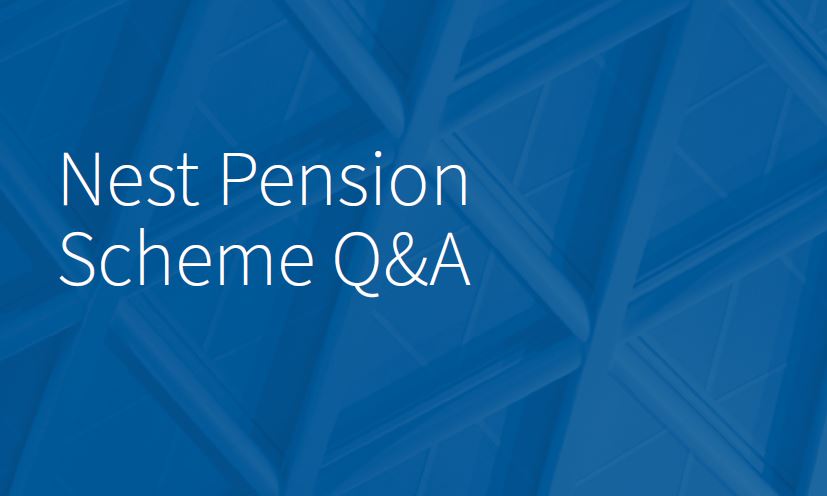Examining unrewarded risk
When it comes to investments, risk isn’t a bad word. A certain amount is necessary for any reward to be gained. Upside risk is the measure of the potential for an investment to gain in value. Measures of downside risk estimate how much the investment could decline in value if market conditions changed. Some measures reveal the worst-case scenario that shows an investor exactly how much they stand to lose.
Although the majority of pension savers are by no means financial experts, knowing that their pension schemes seek to minimise the downside is an important factor in building trust in the industry. After all, the dot.com bubble, the 2008 global financial crash and the coronavirus outbreak have demonstrated to the public that their life savings – not to mention the prospect of a comfortable retirement – are at risk. It’s a provider’s responsibility to try to effectively manage this risk to protect their members’ funds.
As Mark Fawcett, Nest’s Chief Investment Officer explains, ‘Too often the pensions industry talks about investment performance without considering the risk taken. And yet we know from our research that many pension savers want steady, smooth returns instead of high volatility… All pension schemes can help build confidence in savers by focusing on achieving the best risk-adjusted returns for members, and moving away from often misleading short-term, headline returns.’.
Why is it so important to identify a scheme’s unrewarded risk?
Firstly, schemes that do better on a risk-adjusted basis are likely to produce a smoother experience in challenging markets. That’s important for members because we know from our research that the DC generation are very loss averse and value steady returns over high octane growth.
Secondly, taking less risk or reducing volatility means there’ll be a smaller spread of returns between members retiring at a similar time and members of different ages, so all members are more likely to have a fairer experience. With higher risk funds, some people may get really high returns and others may get the opposite. We don’t think that’s fair or right for our members, which is one of the reasons we’ve designed our strategy the way we have.
So how can you identify which funds have taken on too much risk?
That’s where Sortino ratios come in. They represent a portfolio’s risk adjusted return, but only considering how much downside was experienced to get there.
Nest commissioned Defaqto to conduct an independent fact-based review of the Nest pension scheme. Defaqto included Sortino ratios as one of the measures to show how Nest ranked amongst the best and worst performing providers and Nest has been in the top quintile over both three and five years to the end of August 2021.
Sortino ratios for the default funds are shown in the table below. A higher number indicates better downside risk-adjusted performance.
Sortino ratios using 0% hurdle rate
| Provider | 3 years | 5 years |
|---|---|---|
| Average | 0.98 | 1.29 |
| Aegon | 0.99 | 1.34 |
| Aon | 1.38 | 1.84 |
| Atlas Master Trust | 1.08 | 1.39 |
| Aviva | 0.99 | 1.3 |
| B&CE (The People's Pension) | 1.07 | 1.33 |
| Ensign | 1.03 | 1.34 |
| Evolve Pensions | 1.37 | 1.74 |
| Hargreaves Lansdown | 0.99 | 1.3 |
| Intelligent Money | 0.84 | 0.96 |
| Legal & General | 1.13 | 1.31 |
| Lewis & Co | 0.69 | 1.12 |
| Mercer Growth | 0.87 | 1.27 |
| National Pension Trust (NPT) | 1.34 | 1.66 |
| Nest | 1.24 | 1.55 |
| NOW: Pensions | 0.93 | 1.01 |
| Royal London | 0.73 | 1.12 |
| Scottish Widows | 0.74 | 1.02 |
| Smart Pension | 0.84 | 1.21 |
| Standard Life | 0.68 | 0.91 |
| Workers Pension Trust (WPT) | 0.72 | 1.13 |
Download the full report from Defaqto.
Defaqto is a leading financial information, ratings and fintech business. Its unbiased star ratings help consumers, financial institutions and financial advisers make better informed decisions.
Nest is the UK’s largest auto-enrolment compliant workplace pension scheme, which is used by 10 million savers and at the end of December 2021 had over £23bn invested on behalf of members.
Nest is one of only four Master Trust based schemes to hold a Defaqto 5 Star Rating and has done so consistently for five years. To put this accolade into perspective, 87% of Master Trusts and 66% of all retail workplace pension schemes on the Defaqto database have a lower rating.
